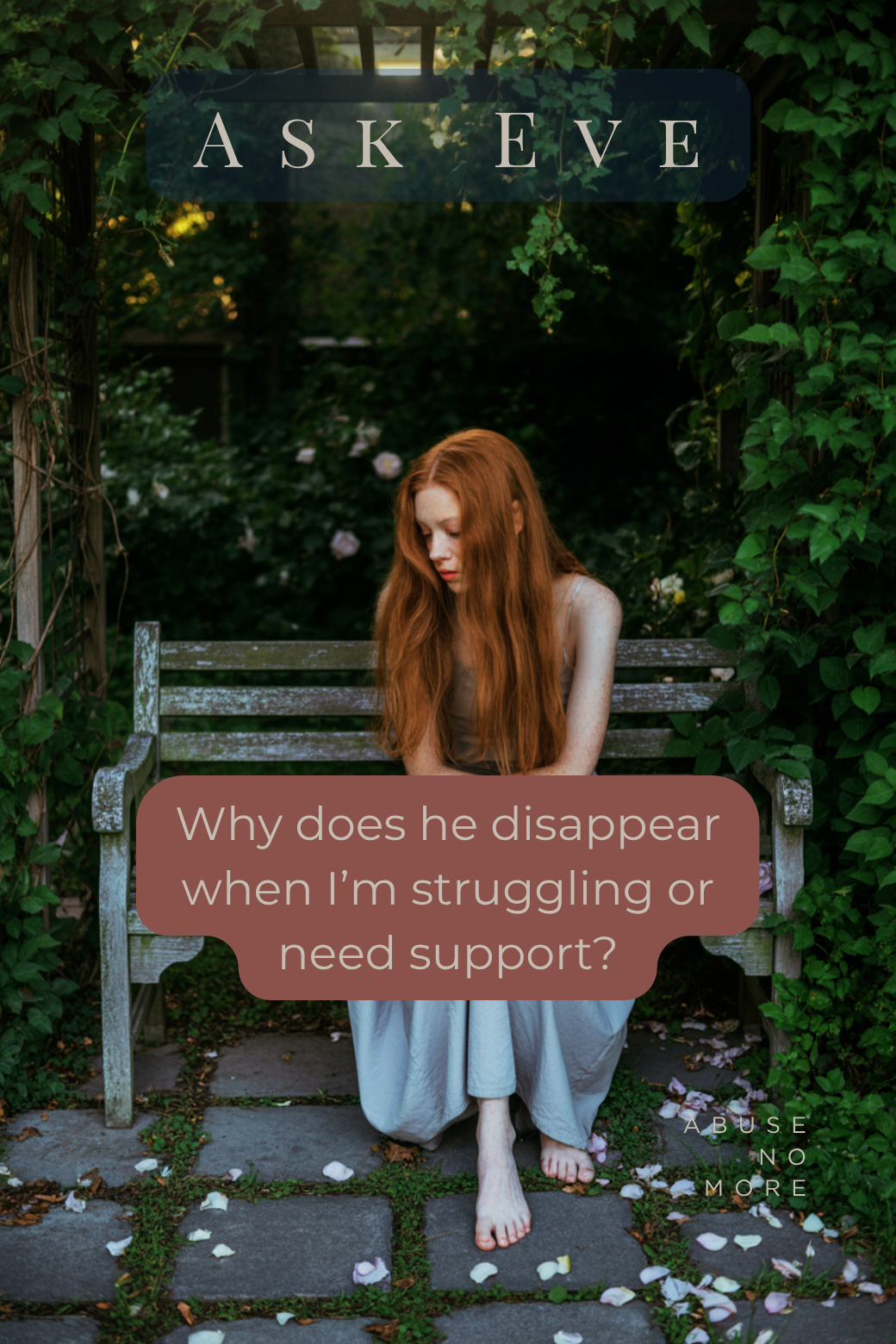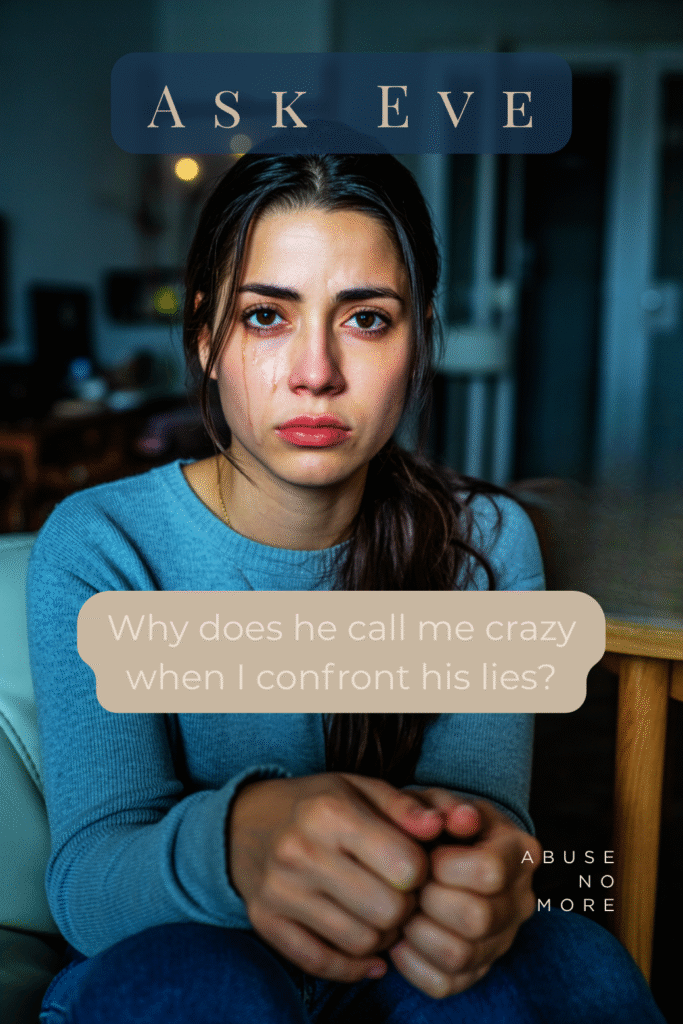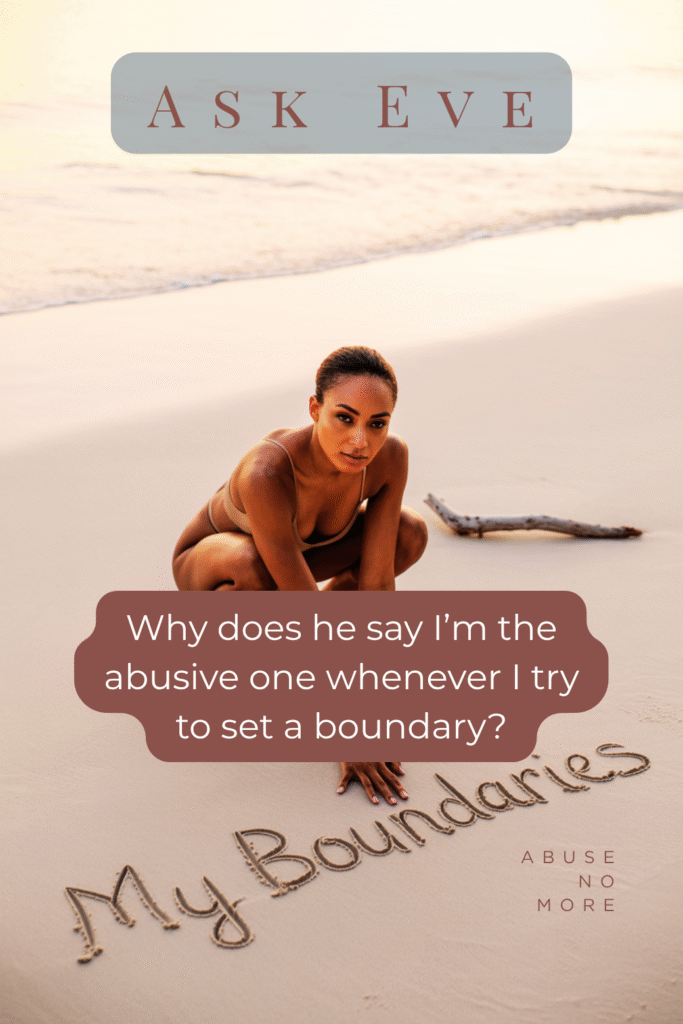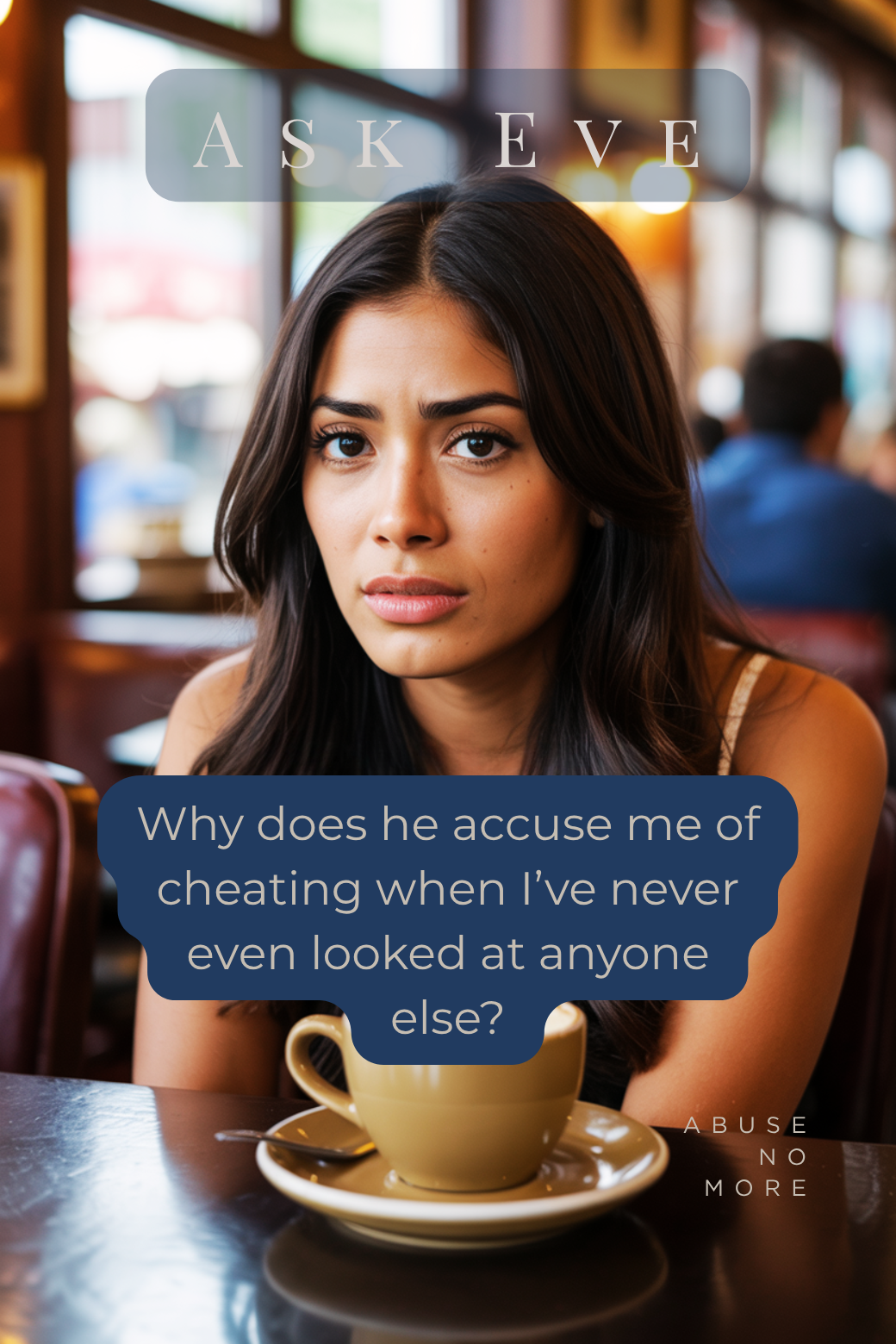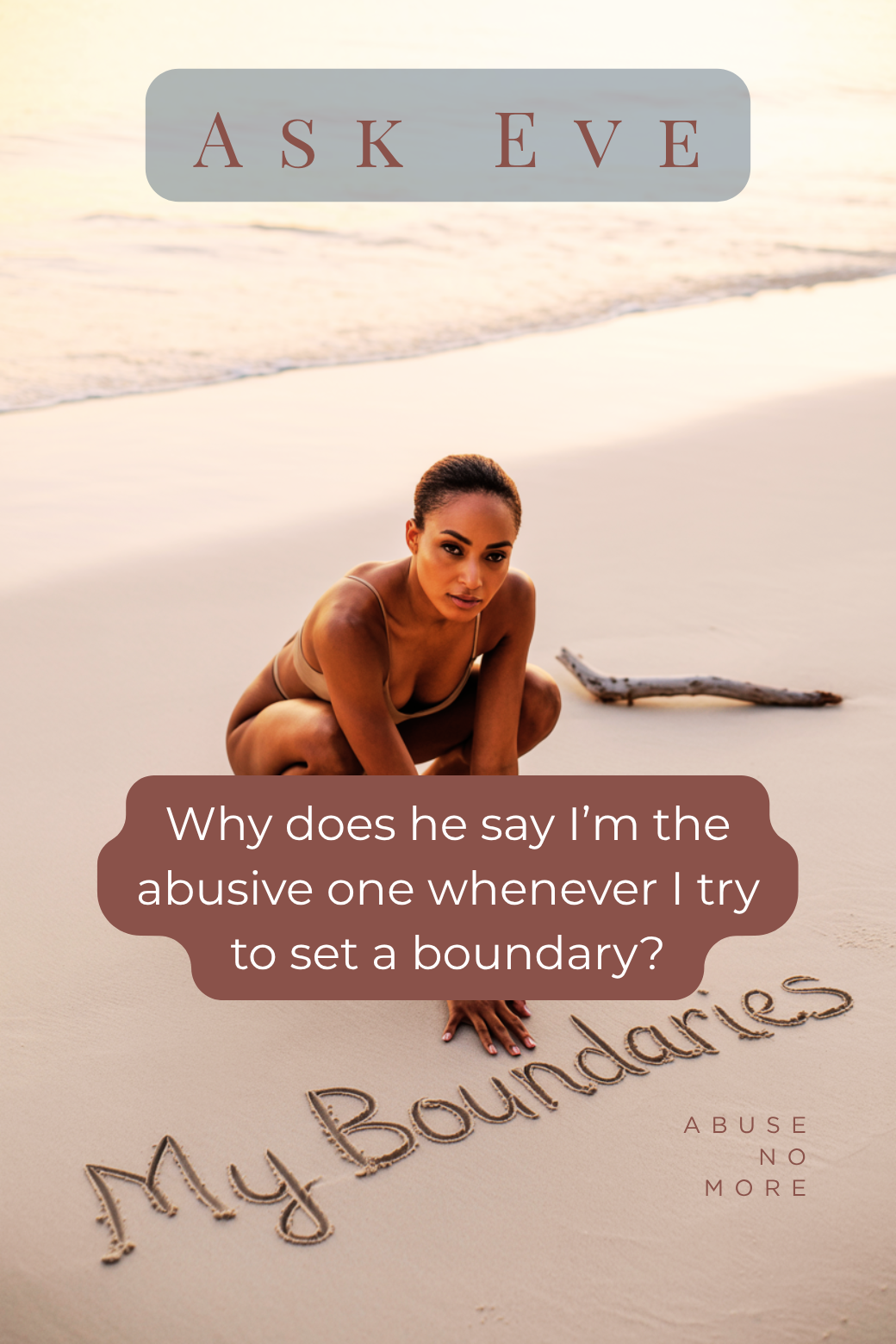“Why Does He Disappear When I’m Struggling or Need Support?”
(aka Emotional Abandonment in Narcissistic Relationships)
1. “He says he just ‘doesn’t know how to help.’ Is that a real reason — or an excuse?”
Let’s be generous for a second. Let’s say someone wasn’t raised with emotional tools. Let’s say they truly don’t know what to say when their partner is hurting. Okay, fine. That’s real.
But here’s what emotionally safe people do when they don’t know what to do:
They say,
“I don’t have the words right now, but I’m here.”
“I want to help — tell me what support looks like to you.”
“Even if I don’t fully get it, I want to be present with you in it.”
See the difference?
Not knowing how to support someone is a challenge — but disappearing when they’re in pain? That’s a choice.
So when he says, “I just don’t know how to help,” pay attention to what follows that statement. Does he lean in and try anyway? Or does he emotionally evacuate the room and leave you bleeding on your own?
Because real love stays. Real love tries. Real love doesn’t ghost you during a panic attack and then reappear three hours later acting like you’re the problem for being “so intense.”
So no — “not knowing how” isn’t the problem.
Not caring enough to figure it out is.
2. “Is emotional abandonment really abuse — or am I just being sensitive?”
Let me answer this with a question of my own:
If someone physically walked out every time you asked for food, water, or medicine — would that be considered neglect?
So why do we treat emotional needs like they’re optional?
When you’re struggling and your partner consistently disappears — physically, emotionally, energetically — that’s not just “being bad at emotions.” That’s patterned neglect, and it has the same long-term impact as other forms of abuse:
You start doubting your needs
You start hiding your pain
You begin shrinking yourself to avoid being “too much”
You carry silent shame for having normal human emotions
It’s abuse through absence.
It’s punishment through silence.
And it’s training your nervous system to fear vulnerability.
So yes — emotional abandonment is a form of abuse when it’s repeated, deliberate, and met with blame. Don’t let anyone gaslight you into thinking you’re just “too sensitive” when your humanity is being treated like a nuisance.
3. “I’ve stopped sharing my feelings because he shuts down. Am I doing the right thing — or betraying myself?”
You’re not betraying yourself — you’re protecting yourself.
When someone repeatedly punishes your openness with coldness, withdrawal, or irritation, your nervous system does what it’s designed to do: it adapts. It learns, “Feelings = danger.” So it stops expressing. Stops trusting. Stops reaching out.
That’s not weakness. That’s survival.
But here’s the cost:
You’re protecting yourself from him, not the world.
And now, your inner world is a locked room no one has the key to — not even you.
So ask yourself this: What’s the long-term effect of staying silent to keep someone else comfortable?
Because it’s one thing to manage conflict wisely. It’s another thing entirely to abandon your emotional life just so someone else doesn’t have to grow.
You’re not wrong for closing up.
You’re just not meant to live locked shut.
Your feelings didn’t break the relationship.
His refusal to meet them did.
4. “He shows up for others when they’re struggling — just not for me. What does that mean?”
It means he can show up — he just chooses not to for you.
That’s a brutal pill to swallow. But let’s not dodge it.
If he comforts his sister when she’s crying, if he checks in on his friends when they’re depressed, if he volunteers emotional labor for everyone but you — he’s not emotionally incapable. He’s emotionally selective.
And that selectivity is often a form of control.
Because in a narcissistic dynamic, the closer you get to someone, the more they start using distance as power. Public empathy? That’s easy. It earns praise. But private presence — especially with someone who sees the cracks in their armor? That’s risky. That requires humility. That demands consistency.
And narcissists don’t do consistency.
They do control.
So if he’s reliable for everyone but the person who loves him the most — know this:
You’re not being too needy.
You’re being targeted by the one person who knows exactly how to withhold from you — and exactly how much you’ll tolerate.
It’s not about capacity.
It’s about access.
And he’s deliberately denying it.
5. “Why does he get irritated when I’m upset? Shouldn’t he want to comfort me?”
In healthy relationships, yes — your pain creates closeness.
In toxic ones? It creates resentment.
Why? Because narcissists view your emotions as inconvenient obstacles. Not invitations for intimacy. Not moments for bonding. But interruptions in their script.
When you’re happy, he gets to be the reason.
When you’re hurting, he has to either be responsible… or respond. And he doesn’t want to do either.
So instead, he flips it:
“You’re so dramatic.”
“Here we go again.”
“Why do you always need something?”
“I just don’t have the energy for this right now.”
That’s not frustration. That’s punishment. It’s designed to make you stop opening up. To make you feel like you’ve done something wrong by being human. And it works — because eventually, you internalize the idea that “sad = annoying” and “upset = unlovable.”
But it’s not true.
Your emotions aren’t the problem.
His intolerance is.
6. “Why do I keep hoping he’ll change, even though he never does?”
Because hope is the last thing to die in an emotionally abusive relationship.
You remember the tiny moments when he did show up — that one night he stayed on the phone, the random moment he held your hand, the single time he asked how you were feeling.
Those breadcrumbs? They become your anchor.
You think, “If he could do it once, maybe he can do it again. Maybe I just need to be less reactive. More calm. More understanding.”
But here’s the trap:
You’re building your entire emotional reality around exceptions, not patterns.
Hope is beautiful. But false hope is a form of self-abandonment. The kind that slowly teaches you to expect less and less until you’re surviving on crumbs and calling it dinner.
You’re not broken for still hoping.
But it’s time to ask: What would happen if you gave that hope to yourself instead?
To the part of you that wants to be heard, held, loved, respected — not tolerated, not managed, not minimized.
That’s not giving up on love.
That’s giving up on pain disguised as love.
7. “If he disappears when I need him most… what am I actually holding on to?”
That question hurts — because the answer isn’t always clear.
Maybe you’re holding on to the beginning — the love-bombing, the good days, the promises.
Maybe you’re holding on to the dream — of who he could be if he just did the work.
Maybe you’re holding on to your own loyalty — the idea that leaving means “quitting.”
But if we’re honest?
You might just be holding on to the hope that one day… he’ll finally be the person he pretended to be in the beginning.
And that’s the cruelest part.
Because you’re not wrong for loving someone.
You’re not foolish for believing people can grow.
You’re not weak for wanting to feel safe in a relationship.
But when someone disappears at the exact moment you need to be held — over and over again — they’re not just unreliable.
They’re dangerous to your emotional well-being.
So what are you holding on to?
Maybe it’s time to hold on to you.
The version of you who deserves to cry without punishment.
To hurt without being abandoned.
To be human — and still be loved



